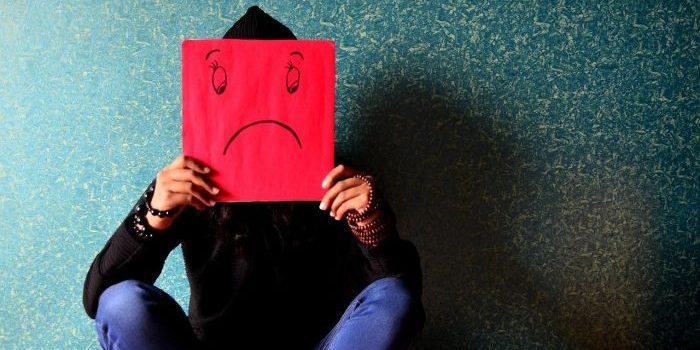Introduction
Depression and anxiety are very common among college students. In fact, it’s estimated that nearly one-third of all college students experience some type of mental health issue. But just because you’re going through these issues doesn’t mean you have to feel alone! Your friends and family can help support you in your time of need.
College students are at a high risk for depression and anxiety
- According to the National Alliance on Mental Illness, college students are 2-3 times more likely to have depression than people in other age groups.
- Depression is more common in women than men; however, it does affect both genders equally (1).
- The rate of anxiety disorders such as panic attacks and generalized anxiety disorder has increased among young adults ages 18-24 since 1990 (2). This increase is most likely due to changes in society and life experiences that may put stress on teens’ mental health which can lead them down a path towards developing an anxiety disorder later on in life if they don’t get help early enough (3).
The symptoms of depression and anxiety in college students can be subtle
Depression and anxiety can be very subtle. If you’re feeling down, it might not necessarily be obvious to your friends and family that something is wrong with you. This can make it harder for people around them to help them if they need it.
Depression can cause people to withdraw from their friends, family members, or other people in general—often by cutting themselves off from the outside world altogether (in extreme cases). They may feel like there’s no point in doing anything because nothing will ever change their situation; meanwhile, they feel trapped inside their own head where everything feels hopeless and hopelessness feels like a reality itself!
Anxiety often causes feelings of tension throughout the body: limbs may feel tense; breathing becomes difficult; muscles tighten up so much that it feels impossible even thinking about moving them again without causing pain first_.
Common causes of depression and anxiety include academic pressure and poor time management skills
Depression and anxiety can be caused by a number of factors, including academic pressure, poor time management skills and social isolation.
- Academic pressure: When you have a full course load with multiple classes to take and exams to prepare for, it’s easy to fall behind on your work. This can lead to depression because you feel like your grades are not up to par with other students in class or on campus.
- Poor time management skills: If you don’t prioritize your responsibilities correctly or put off important tasks until later in the day (or week), then they will never get done on time—and that means there won’t be enough time left over for other things! For example: if I told myself “I need 10 minutes today” before getting started with my homework assignment but instead spent 20 minutes checking Facebook or Instagram instead of focusing on what needed doing first…then how could I possibly manage my workload effectively?
Distorted thinking, such as thinking negatively about yourself or the future, is a common cause of depression and anxiety
The more we think negatively, the more likely we are to experience depression and anxiety. Negative thinking can be hard to spot because it often happens without us realizing it. When you have a negative thought or worry about something, try not to act on it immediately. Instead, take a moment before reacting so that you can consider what kind of response would be most helpful in this situation.
If you catch yourself having negative thoughts during the day (for example: “I’m such an idiot”), remind yourself that these kinds of thoughts aren’t true about yourself as a person—they just reflect how much pressure there is on your life right now. Then think about how much better things would feel if people were nicer instead of being rude all the time! That way when someone acts rudely towards us (or even just makes our day worse!), we’ll know exactly how not worth their time they really are.”
Depression and anxiety can make it difficult to succeed academically
Depression and anxiety can make it difficult to succeed academically. When you’re depressed, your mood is often affected by the smallest things like a bad grade on a test or an argument with a professor. Anxiety can also make it hard for you to concentrate on studying or completing assignments because of your mind constantly racing.
If you have both depression and anxiety, then the two conditions may be more difficult for you than for most people who only have one type of disorder. For example: If someone has depression without any other mental health issues (like anxiety), their symptoms will likely be less severe than those who also have generalized anxiety disorder (GAD).
There are many things you can do to help with your depression and anxiety including seeking counseling
- Seek help from a counselor or therapist. Depression and anxiety are often co-occurring conditions, meaning that they occur together rather than separately. If you have both depression and anxiety, it is important to seek out help for one condition before you can begin to treat the other one.
- Talk to someone about your struggles with depression and anxiety. Talking about these issues can be helpful for many people who struggle with them because it lets them know that they aren’t alone in their struggle, which can make things seem less overwhelming at times when you’re feeling down or anxious about something specific happening in your life (like getting bad grades). This can also lead into developing new coping mechanisms such as exercising more often or spending time outdoors instead of being inside all day long!
- Seek support groups where members share experiences similar as yours so that there’s someone else who understands what’s going on inside our head/heart/body.”
College students should be aware of how common these issues are, how to spot the signs and how to address them
Depression and anxiety are common in college students. Although the symptoms of depression can be difficult to spot, there are many telltale signs that you should watch for. Depression and anxiety often occur together, so it is important to recognize both conditions when they occur.
Signs of Depression:
- Feelings of sadness or hopelessness that last most of the day every day (at least five days per week) for at least two weeks (or until you start feeling better)
- Trouble concentrating on schoolwork or other activities because of a low mood
Signs of Anxiety: * Being afraid that something bad will happen; feeling worried about this fear over time even though there’s no reason why these things would happen; feeling like your body might react physically if something bad happens
Conclusion
College students are often under a lot of stress. It can be hard to keep up with classes, maintain friendships, work part-time jobs and study enough to graduate on time. At the same time, young adults are also experiencing their first experience with relationships and life outside of the home. Depression and anxiety in college students is common because these things make it difficult for people to cope with these other issues they face every day.
The good news is that there are many resources available if you need help dealing with depression or anxiety while in college. College counseling centers offer free services for all students on campus who need extra support so they can stay focused on their studies while also receiving treatment if needed (and sometimes both). If you’re struggling with depression or anxiety yourself then this blog post may be helpful; it will give you tips on how best to deal with these feelings when they strike so that they don’t get worse over time!




